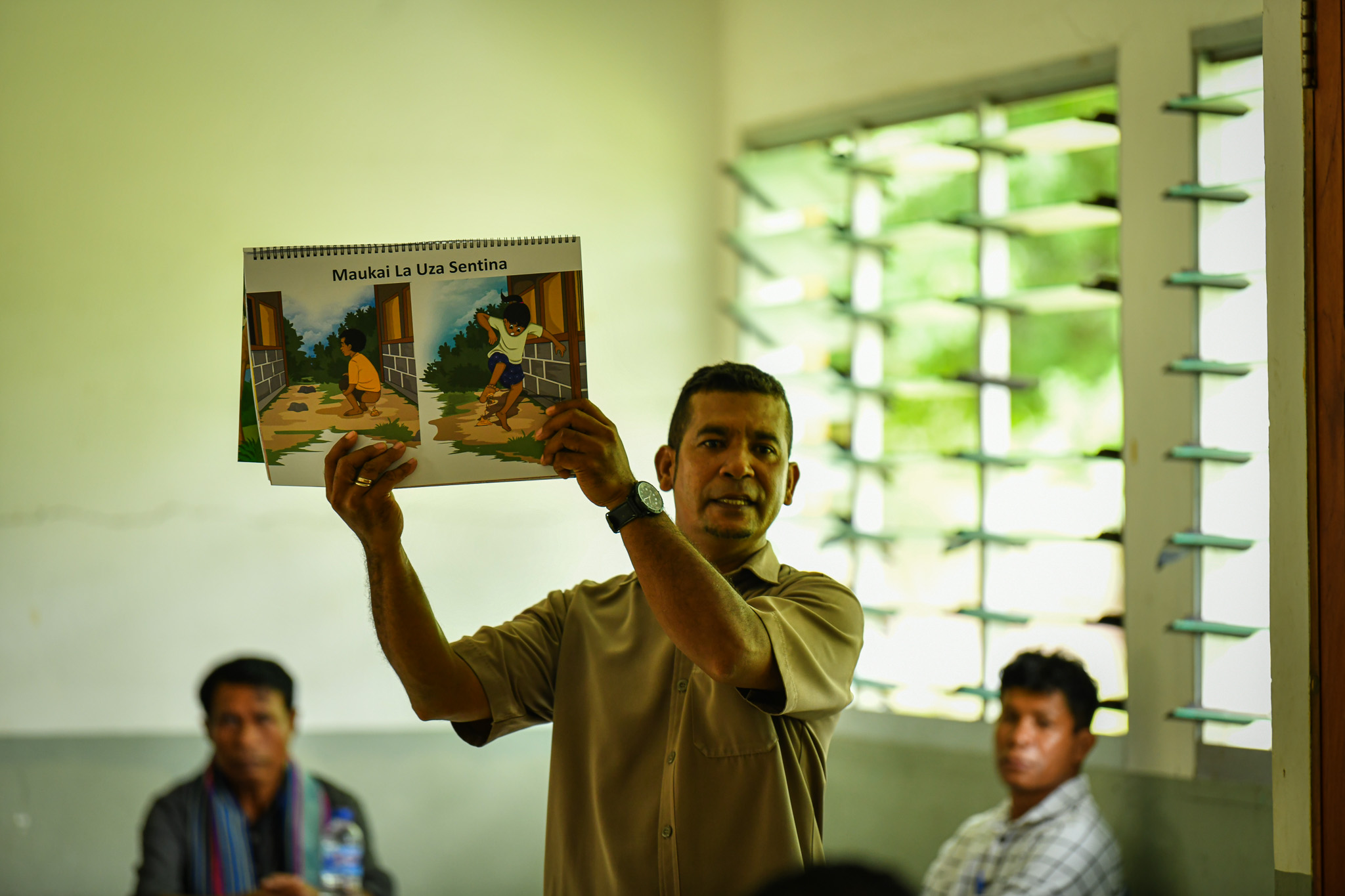Manatuto, Timor-Leste: At EBC Iliheu School in Timor-Leste's Manatuto municipality, students listen attentively as their teacher narrates a story using a pictorial flipchart. The tale revolves around a young girl and a boy who often play without shoes, consume unclean food, and fall ill one day. It turns out that they harbored worms in their stomachs. The two children were then administered deworming tablets at their school, leading to the expulsion of the worms through their stool. With this, the teacher concludes, “The worms may return if they persist with their unhealthy habits.”

This story serves as a precursor to the distribution of deworming tablets -albendazole- to the children who now grasp the significance of the medication. EBC Iliheu School is among the 1,300 schools across Timor-Leste included in a mass drug administration drive for deworming held between March 13th and 24th. Over 300,000 students in grades 1 to 9 received the deworming medication during this period.
These deworming rounds are part of the School-based Primary Health Care Package under the "Say No to 5S" project, addressing Starvation, Soil-Transmitted Helminthiasis, Skin Diseases, Smoking, and the consumption of Sugary/Alcoholic drinks in Timor-Leste. This initiative is funded by the Korea International Cooperation Agency (KOICA).
“I remember passing out the worms a few years ago after receiving the medicine,” said Nina Graça, a seventh-grade student at EBC Iliheu School. “I was quite scared then, but I am glad to have this medicine as it helps eliminate worms from my body,” she said.

Another student, Filomeno Soares, narrated a similar experience. “I am not afraid of taking the medicine,” as he ingests the tablet provided by the teacher.
Soil-transmitted helminth infections are caused by different species of parasitic worms. These infections affect the poorest and most deprived communities with poor access to clean water, sanitation, and hygiene.
A national level parasite survey carried out in Timor-Leste in 2012 had estimated the prevalence of soil-transmitted helminthiasis ranging between 4% to 55% in various municipalities of the country. A large-scale Transmission Assessment Survey (TAS) conducted between 2020-2021 showed that the prevalence of soil-transmitted helminthiasis ranged between 2% to 50% in various areas.
The Ministry of Health, in collaboration with the Ministry of Education, World Health Organization, and other partners, has conducted numerous mass drug administration rounds of albendazole (400 mg) over the years to reduce prevalence. Albendazole is one of the two medicines recommended by the WHO to combat soil-transmitted helminthiasis, which is effective, affordable, and easy to administer even by non-medical personnel such as teachers.
“Deworming drives conducted in schools are really beneficial because students are concentrated there,” said Dominggos Alves, a health worker from the Laclo Health Center in Manatuto. “It's easier to administer the medicine to them compared to reaching communities, especially in places like Manatuto where communities are spread far apart. This approach ensures that many children receive albendazole,” he said.
WHO Representative to Timor-Leste, Dr. Arvind Mathur, said that periodic deworming campaigns are a proven strategy to combat Neglected Tropical Diseases like soil-transmitted helminthiasis. “Sustained efforts in this area will significantly contribute to addressing nutritional deficiencies in the Timorese population, especially iron and protein deficiencies, as parasitic infections are known to cause iron and protein loss,” he said.
